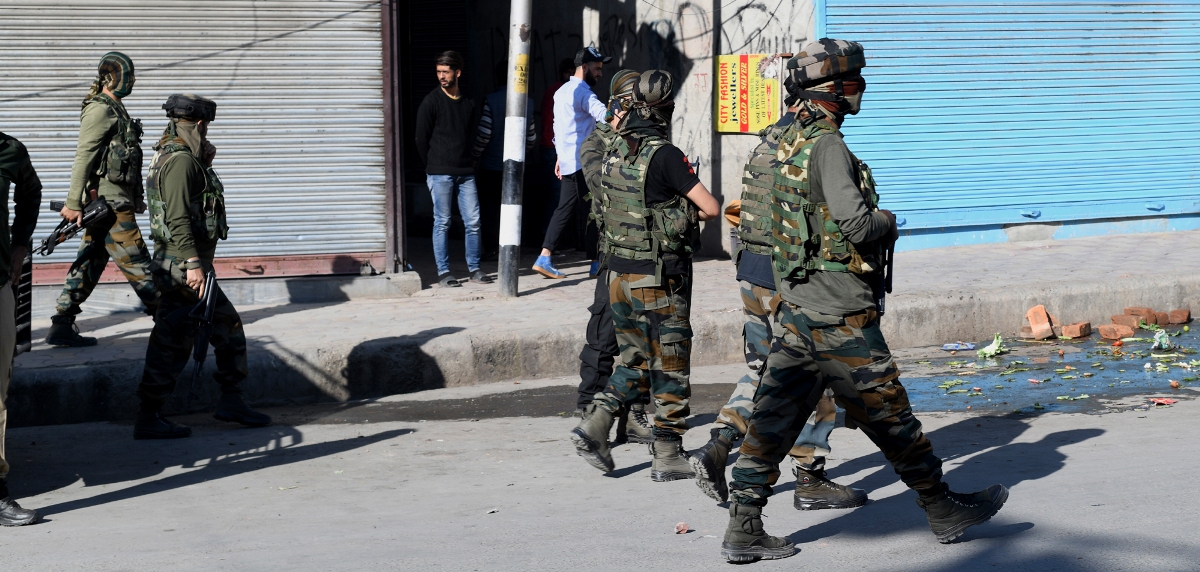SAFWAT ZARGAR
SRINAGAR
On Sunday afternoon when eighteen-year old Mehak saw people of her neighbourhood rushing to nearby mosque with vegetables, milk, bread and medicines, to provide help to flood survivors, she couldn’t hold herself back. Stirred by the emotionally charged atmosphere in her locality, Mehak and her uncle left for the mosque with two samovars of kehwa for some 60-70 odd women – many of them with their little ones cuddled in their arms – who had turned the Central mosque of Chanapora as their shelter after their homes were submerged.
While distributing kehwa among the women amidst the cacophony of pain, wails and confusion, Mehak saw a girl, sitting alone and crying, in the corner of the huge main hall of the mosque. The unnamed girl Mehak saw had tears glittering on her face. Tears flowing down her face fell like rain drops,untouched and unwiped.
“She was worried about her parents particularly her mother who is suffering from heart ailments. They were trapped in their newly-built three-storied house in Chanapora where the deadly 12-feet water level was rising quickly,” says Mehak while recalling her first interaction with the girl. “I didn’t even ask her name.”
Before landing in the mosque along with her two older sisters, the girl had been brought up on shoulders from the water- clogged Rose Lane Colony by local volunteers in the day. The volunteers had left her parents in the house while promising rescue. But they didn’t.
Earlier in the day, Mehak, herself, had gone through a same experience of “separation in crisis” from her parents. Her father and ailing mother were only rescued from the deluge in Khan Colony on Sunday afternoon. She had been already out of her home as she was at a marriage function of her friend’s sisters.
Empathizing with the unnamed girl, Mehak held her hand and left for her submerged home. In the lane which was impossible to go through because of water, Mehak with the sobbing girl on her side, shouted out to the rescuers to bring the girl’s parents, but the volunteers had no boat.
Unrelenting, she left for another colony to bring the helpers for the rescue of girl’s parents. It was Maghrib (evening prayer) time and an air-sofa carrying some old men reached near Mehak in the colony. As soon as the trapped civilians un-boarded the sofa, it burst off.
“I tried to persuade the rescuers to come to another colony but they told me it was late,” Mehak says. Worried about her little sister, the elder sisters of the unnamed girl came looking after her. They took her to the mosque. In a whisper, Mehak saw a little girl calling out to the unnamed girl with the name “Mehak.”
In the morning, Mehak knocked the door of her friend and visited the mosque to know the condition of her “namesake.” But they couldn’t find her. For three continuous days, she
went to look for the girl, but she wasn’t there. Neither were her sisters.
This reporter after being told about this story accompanied Mehak to look for the girl again. While most of the flood victims had left mosque by Wednesday, we left for Rose
Lane Colony to assess the damage and meet the girl. Residents of the area said that there was no loss of life in the colony though some old houses had collapsed. We saw people cleaning their homes, some of them had left their valuables to dry, and some of them were helping others to clear off the algae brought up by the flood.
After a hard tread through knee deep water in the lane, we weren’t able to find the unnamed girl. On being assured that there was –unusually much against the present situation in Kashmir – no casualty in the area, we left the area, hoping that “Mehak” met her parents.















